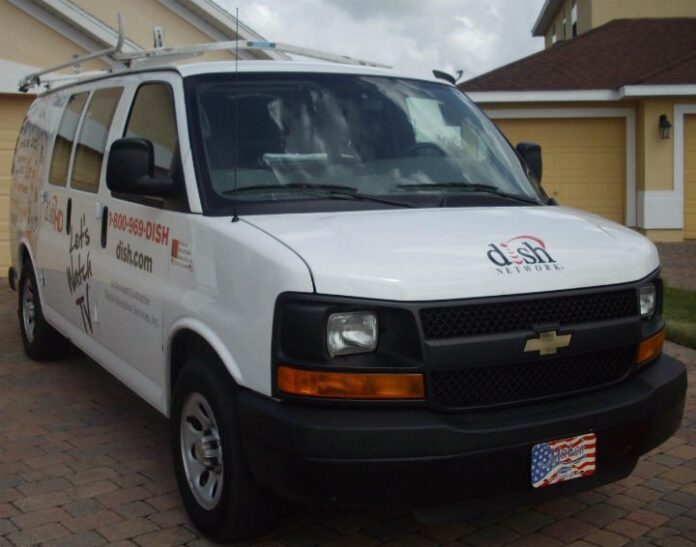Dish Network is in-play in the T-Mobile, Sprint merger trial. Dish said they will become the number four wireless competitor, so the deal should be approved. While I love their commitment, spunk and confidence, they have absolutely zero wireless history and experience. So how can they be so certain when other large companies have tried and failed at wireless?
The T-Mobile, Sprint merger process has been moving ahead at a snail’s pace for too long. They have won approval from various government agencies like the DoJ and FCC, but others like several states Attorney Generals are not so certain and are trying to block the merger.
T-Mobile, Sprint is like giving up one in the hand for two in the bush
The reason for this merger should be clear to everyone. T-Mobile needs this merger to get Sprint wireless spectrum. Sprint needs this merger to get T-Mobile marketing success.
That being said, this merger will reduce the top wireless competitors from four to three. That’s what the regulators are concerned about. Granted, this sounds like we are giving up one in the hand to get two in the bush. That’s the fear regulators are dealing with and trying to avoid.
However, the wireless industry has been growing and changing for decades and is still doing so. In fact, the industry looks much different today than it did a few short years ago when this T-Mobile, Sprint merger idea was born. And it will continue to change.
Wireless continues to change
Today, while T-Mobile has been growing, the question is, can they continue that same pace of growth without more wireless data spectrum.
Today, Sprint has been struggling to be a competitor in this space. They have loads of spectrum but have fallen from number three to number four in the marketplace.
Either way, I think Sprint will need to merge with another company just to survive. They can’t seem to do it on their own. Whether that be T-Mobile or another company, they cannot continue as they are today.
How successful will Dish Network Wireless be?
Dish Network has been building their wireless arsenal of spectrum for years. They need to get started in wireless or they risk losing that spectrum.
That being said, I like Dish. They are an entrepreneurial company run by a strong leader in Charlie Ergen. They hired Stephen Bye to head their wireless business. He was formerly from C-Spire Wireless and Sprint. They also hired Marc Rouanne from Nokia to help them build their network.
So, it looks like they are preparing to jump into the wireless space with or without acquiring Sprint. Dish has an MVNO arrangement, so they will be able to jump into wireless from the start while they build their organization.
Big question: Can Dish be successful in mobile and do they need Sprint?
The next question is this. Can Dish be successful in mobile services? Do they need Sprint? If so, they could ultimately become the fourth largest competitor. However, that’s a big, “if”.
Many other big companies have tried and failed. The cable TV competitors like Comcast, Time Warner, Cox and more all jumped into wireless years ago and failed. Facebook and Amazon.com also jumped into wireless and also failed.
This means even very successful, large and powerful companies are not guaranteed success in wireless. And the wireless industry continues to change and morph over time making it even more difficult to win.
Only wireless success stories are Verizon, AT&T, T-Mobile and Sprint
The only success stories in wireless seem to be from the major competitors, Verizon Wireless, AT&T Mobility, T-Mobile and Sprint.
MVNO resellers have begun to succeed as well. All wireless networks offer MVNO type services from their parent company.
Cable TV competitors have jumped back in. Comcast has Xfinity Mobile. Charter Communications has Spectrum Mobile. Altice has Altice Mobile. They seem to be doing better this time around compared to failing like they did several years ago.
Xfinity Mobile, Spectrum Mobile, Altice Mobile are small wireless competitors
While I have respect for all of them for their entry into wireless, the truth is they are not industry leaders like Verizon Wireless, AT&T Mobility, T-Mobile and Sprint. They are smaller players.
The reason cable TV is entering wireless is not because they see a growth opportunity. Rather, they are entering wireless as another part of their bundle of services to slow or hopefully reverse customer loss.
Over time I think they will see wireless as a growth opportunity. However, most take too long to change and grow their strategies.
Why will Dish be better than Xfinity Mobile, Spectrum Mobile, Altice Mobile?
That is the world Dish will enter. So, if other big companies are not rapidly growing in wireless, why will Dish be any different or any better? What makes them so certain? That’s the real question at this early stage.
I hope they are. I wish well to every competitor. In fact, the wireless industry will continue to grow over the next decade. That’s the good part for investors, workers and users.
However, it will take quite a bit of money and time for Dish or any competitor to build out their network and become a real competitor to Verizon, AT&T, T-Mobile and Sprint. Until then, they will just be a reseller. That means they will not be a real competing network. Not yet anyway.
The question remains. Will they become a meaningful and successful competitor in this ever-changing wireless space? Dish says yes. T-Mobile says yes. Sprint says yes. But they are the ones who will benefit from it. We don’t hear from anyone else on the matter, which is interestingly quiet.
The potential for Dish success and becoming the fourth largest wireless provider may be the lynch-pin issue in whether to approve the T-Mobile and Sprint merger. Then again, the Attorney General from many states may also win and block it. So, stay tuned.

